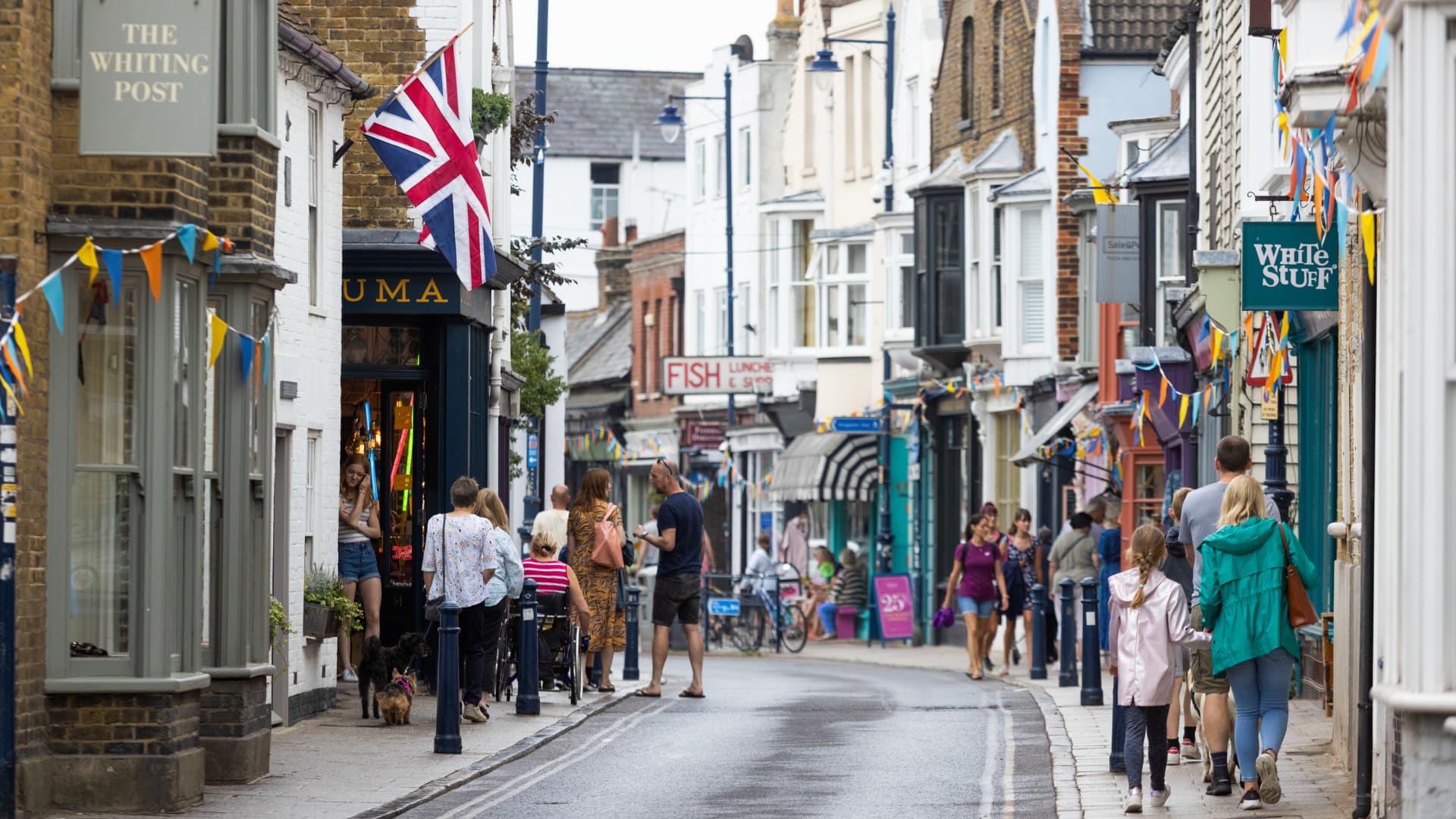
Shoppers pass along the main high street in Whitstable, UK.
Bloomberg | Bloomberg | Getty Images
LONDON — U.K. inflation fell sharply in October to 4.6% from 6.7% the previous month, hitting a two-year low.
The headline consumer price index was flat on a monthly basis. Economists polled by Reuters had expected the headline CPI to rise by 4.8% year-on-year and 0.1% from the previous month.
Core CPI — which excludes volatile food, energy, alcohol and tobacco prices — fell to an annual 5.7% in October from 6.1% in September.
The largest downward contribution came from housing and household services, the Office for National Statistics revealed, where the annual rate for CPI hit the lowest since records began in January 1950.
Food and non-alcoholic beverages also contributed to the easing of inflation, with the annual rate falling to its lowest since June 2022.
The Bank of England earlier this month left its benchmark interest rate unchanged at 5.25% after ending a run of 14 straight hikes in September, as policymakers looked to wrestle inflation back down towards the Bank’s 2% target.
The drop was welcome news for Downing Street after Prime Minister Rishi Sunak committed to halving U.K. inflation back in January, when the annual CPI rate was running above 10%.
Suren Thiru, economics director at ICAEW, said the steep drop suggested that the U.K. has “turned the corner” in its battle against inflation, particularly given the fall in core CPI.
However, he said the halving of inflation since the turn of the year had little to do with government action.
“While the Prime Minister has achieved his target to halve inflation this year, this owes more to the downward pressure on prices from falling energy costs and rising interest rates than any government action,” he said.
“Although subsequent declines will be more modest, the drag on demand from a softening jobs market and high interest rates may mean that inflation falls back to the Bank of England’s 2% target more quickly than they currently expect.”
The Wednesday print will strengthen market bets for the central bank to leave rates on hold again at its December meeting.
But Lindsay James, investment strategist at Quilter Investors, said that the Monetary Policy Committee will want to see “more evidence of slowing inflation across the economy, rather than it coming primarily from fluctuations in international energy markets.”
“With Core CPI (excluding energy, food, alcohol and tobacco) falling more gradually, now at 5.7% and down from 6.1% in September, it is clear that further progress towards the target of 2% is likely to be relatively slow,” she added.
